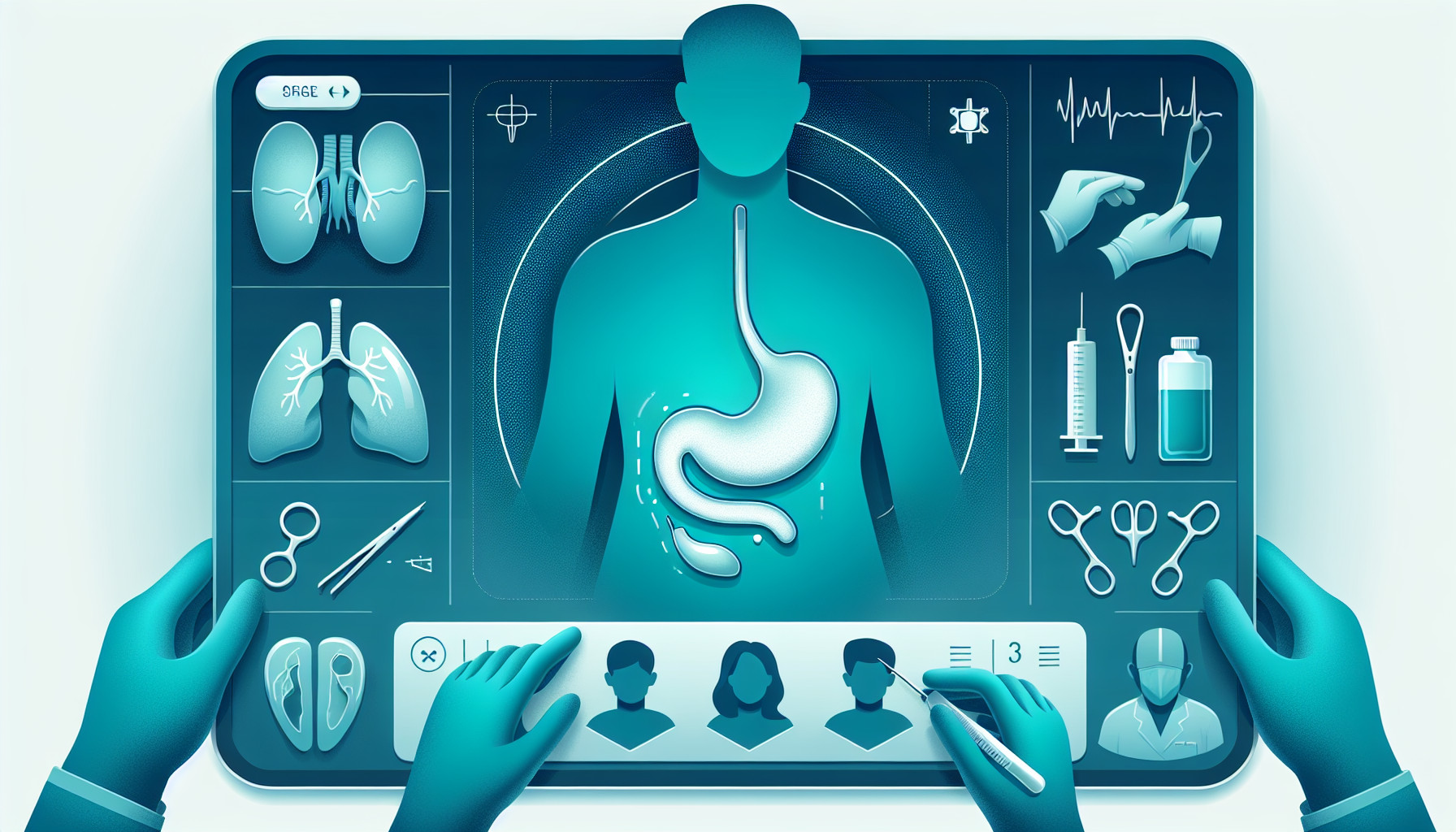Our Summary
The research paper looks at the best surgical treatment for a certain type of gallbladder cancer, known as T1b gallbladder carcinoma. The researchers examined data from patients who underwent surgery between 2000 and 2017. They found that for patients with a less aggressive form of this cancer (grade I), a simple gallbladder removal (cholecystectomy) may be enough. However, for patients with more aggressive forms of the cancer (grades II to IV), a more extensive surgery that includes lymph node removal or a radical cholecystectomy (complete removal of the gallbladder and surrounding tissues) is more beneficial. These more extensive surgeries correlated with higher survival rates in patients with more aggressive cancer.
FAQs
- What is the best surgical treatment for T1b gallbladder carcinoma according to the research?
- Will a simple cholecystectomy be sufficient for patients with less aggressive forms of T1b gallbladder carcinoma?
- Are more extensive surgeries like radical cholecystectomy more beneficial for patients with more aggressive forms of T1b gallbladder carcinoma?
Doctor’s Tip
One helpful tip a doctor might tell a patient about cholecystectomy is to follow a healthy diet low in fat and high in fiber after the surgery to prevent complications such as diarrhea or digestive issues. Additionally, it is important to stay hydrated and gradually reintroduce solid foods into your diet under the guidance of a healthcare provider to ensure proper healing and digestion. Regular follow-up appointments with your healthcare team are also important to monitor your recovery progress and address any concerns or symptoms that may arise post-surgery.
Suitable For
Typically, patients who are recommended cholecystectomy include those with:
- Gallstones causing symptoms such as pain, inflammation, or infection
- Gallbladder polyps that are large in size or have a high risk of being cancerous
- Gallbladder cancer, particularly in more advanced stages
- Biliary dyskinesia (gallbladder dysfunction)
- Chronic cholecystitis (inflammation of the gallbladder)
- Pancreatitis caused by gallstones
It is important for patients to consult with their healthcare provider to determine if cholecystectomy is the best treatment option for their specific condition.
Timeline
Before cholecystectomy:
- Patient experiences symptoms of gallbladder issues such as abdominal pain, nausea, vomiting, and bloating.
- Patient undergoes diagnostic tests such as ultrasound, CT scan, or MRI to confirm gallbladder disease.
- Patient may be prescribed medications to manage symptoms and dietary changes to alleviate discomfort.
After cholecystectomy:
- Patient undergoes surgery to remove the gallbladder, either laparoscopically or through open surgery.
- Patient is monitored in the hospital for a few days post-surgery for any complications.
- Patient may experience some pain and discomfort at the incision site, which can be managed with pain medications.
- Patient is advised to follow a specific diet post-surgery to aid in digestion and prevent complications.
- Patient may experience diarrhea or changes in bowel habits due to the absence of a gallbladder, which typically improves over time.
- Patient may need to follow-up with their healthcare provider for check-ups and monitor for any long-term complications.
What to Ask Your Doctor
- What type of gallbladder cancer do I have and what stage is it in?
- What are the pros and cons of a simple cholecystectomy versus a more extensive surgery for my specific case?
- What are the potential risks and complications associated with the recommended surgical treatment?
- How will the surgery affect my quality of life and recovery time?
- What is the expected prognosis and survival rate for my specific type and stage of gallbladder cancer?
- Are there any alternative treatment options available besides surgery?
- Will I need any additional treatments, such as chemotherapy or radiation therapy, after the surgery?
- How experienced is the surgical team in performing the recommended procedure for gallbladder cancer?
- What can I do to prepare for the surgery and optimize my chances of a successful outcome?
- Are there any specific dietary or lifestyle changes I should make post-surgery to support my recovery and overall health?
Reference
Authors: Shao J, Lu HC, Wu LQ, Lei J, Yuan RF, Shao JH. Journal: World J Gastroenterol. 2022 Aug 21;28(31):4431-4441. doi: 10.3748/wjg.v28.i31.4431. PMID: 36159006
